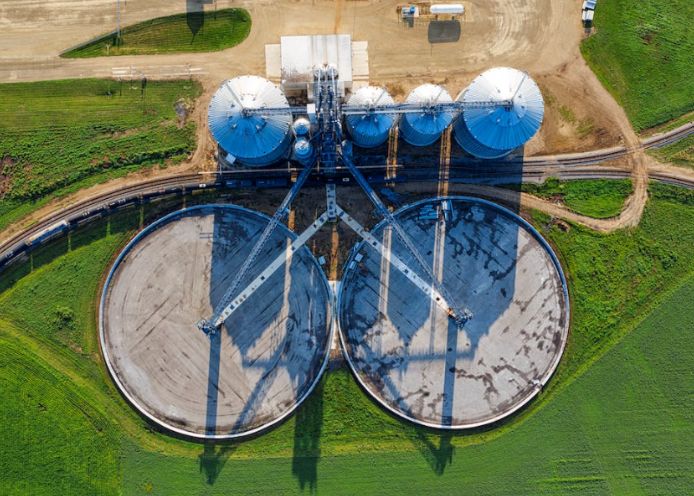What exactly is Agri Tech?
Agri Tech, or more simply Agri Tech, refers to the use of technology in agriculture, horticulture and aquaculture, mainly using software, automation and data analysis to improve the agricultural sector’s yield, efficiency and profitability.
It is an emerging economic sector that has the potential to completely reshape global agriculture, significantly increasing the productivity of the agricultural system while reducing the environmental and social costs of current agricultural production practices. 2022, it is expected to be worth around $22 billion worldwide.
Given that we will need to produce more food in the next 40 years than in all of human history to date and that we will need to do so on a planet showing signs of severe environmental stress, Agri Tech innovations are essential.
Some examples of new technologies serving agriculture :
Automation, such as self-guided tractors, planters and other automated equipment.
Precision agriculture tools use data and modeling capabilities to improve the performance of farmers’ practices.
Robotics: This helps create efficiency gains in dairy and animal feed factories.
Virtual reality, via autonomous satellites and drones, gives farmers a more holistic look at their farms and the ability to check the health of their livestock.
Why is Agri Tech important?
The United Nations estimates that the world’s human population will continue to grow unabated, reaching 11 billion people by 2100. Some projections also show that we will need more farmable land to meet food demand.
Furthermore, changes in weather conditions, droughts, floods and water shortages are all factors that affect crop yields. Pollution also considerably impacts soil quality and must, therefore, be controlled.
Finally, growing awareness of healthy foods and trends towards fresh foods could increase demand for the food industry.
The stakes are now too high to continue our current agricultural practices. Agri Tech thus makes it possible to evolve agricultural methods to provide sufficient food for future generations.
But innovation is nothing new to farmers; we know that they contribute to something more significant when they innovate.
Also Read: The Power of Blackboards at Dallas County Community College District (DCCCD)
Advances in agricultural technology can thus:
Help farmers measure, monitor and continually improve their environmental footprint,
support the profitability of farms by maintaining viable agriculture for future generations,
and feed a growing global population while using limited natural resources more efficiently.
It is essential that the food industry rises to the occasion and overcomes these significant global challenges. But doing so will require sustained attention, considerable investment, and Agri Tech-specific entrepreneur support systems to help drive innovation in the sector.
The Future Of Agriculture Will Depend On New Technologies.
As discussed in a previous article, “Agri Tech: new technologies for agriculture”, robotics and sensing technologies are changing how we produce food. One of the biggest challenges of modern agriculture is producing enough food to meet the growing demand of the world’s population while respecting the environment. This is where robotics and sensing technologies can play a crucial role.
Across the world, in greenhouses dedicated to fruit and vegetable production, Agtech engineers are working on automation to reduce costs and improve quality. Devices for monitoring vegetable growth and robotic pickers are already being developed and tested. Work is also being carried out to enhance the monitoring and maintenance of soil quality and to eliminate pests and diseases without resorting to the indiscriminate use of agrochemicals. For breeders, detection technologies are being developed to help manage the health and well-being of their animals.
New Picking Technologies
The Netherlands is renowned for the efficiency of its huge greenhouses for growing fruit and vegetables. However, these operations rely on farm workers to pick the produce. Researchers at Wageningen University in the Netherlands are working on a pepper harvester. The challenge is to quickly and accurately identify the pepper and avoid cutting the plant’s main stem.
The Sweeper robot can locate fruits and detect their ripeness using advanced sensors and algorithms. It can also see obstacles in its path and calculate a collision-free route to reach the fruit, thus ensuring maximum space for its gripping and detachment.
Also Read: Business Management Platform Fusion Place Implementation

